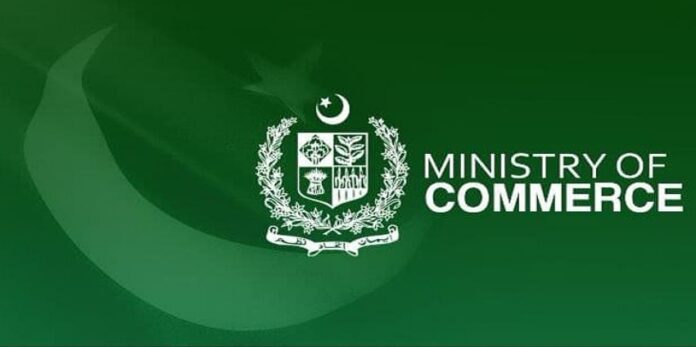ISLAMABAD: Against the backdrop of escalating tensions between Pakistan and India, the Federal Ministry of Commerce has issued an important clarification regarding its decision to suspend trade ties with its eastern neighbor, emphasizing that Pakistan’s international transit obligations will remain unaffected.
On May 4, 2025, the ministry issued SRO 750(I)/2025, officially banning the entry of Indian-origin goods into Pakistan via sea, land, and air routes. The sweeping measure halts both imports and exports of Indian goods and applies to goods transiting through Pakistan to or from India, reflecting Islamabad’s firm response to rising cross-border hostilities.
However, in a memorandum issued on May 8, the ministry clarified that these restrictions do not apply to vessels carrying Reshipment on Board (RoB) cargo, meaning goods on ships that are merely passing through Pakistani ports without being unloaded or entering the domestic market are exempt. This ensures that sea transit trade, particularly RoB cargo bound for or arriving from India, will proceed uninterrupted.
The clarification, issued in response to a communication from the Ministry of Maritime Affairs, aims to reassure international shipping companies and regional trade partners that Pakistan remains committed to its maritime and transit obligations under international conventions.
The clarification follows concerns raised by the Pakistan Ship’s Agents Association (PSAA), which had written to the Ministry of Commerce and the Ministry of Maritime Affairs seeking clarity on the scope of the order. The PSAA noted that a majority of large container ships visiting Pakistan carry up to 70 percent Indian goods and warned that India’s port restrictions could discourage international shipping lines from calling at Pakistani ports altogether.
According to industry experts, in the short term, shipping lines may divert Pakistan-origin cargo to regional hubs such as Jebel Ali, Khalifa, Salalah, or Colombo for transshipment to Pakistan using feeder vessels that bypass Indian ports. While this may increase costs and transit times, industry insiders expect that buyers and sellers will eventually adjust to the new trading environment.
The PSAA described India’s trade restrictions as “unwarranted” and contrary to international conventions. In its communication, it strongly urged Pakistani authorities to clarify that the ban does not apply to Indian RoB cargo in the greater interest of Pakistan’s economy.
The trade suspension comes as part of a tit-for-tat response after India issued its own policy directive, Notification No. 06/2025-26, dated May 2, 2025, amending its foreign trade policy to prohibit the import and transit of all goods originating in or exported from Pakistan. India’s restrictions, effective immediately, include transit cargo not destined for India but routed through Indian ports. This policy is expected to disrupt an estimated 6,000 to 7,000 TEUs (twenty-foot equivalent units) of weekly export volume from Karachi.
Currently, around 4,000 ships call at Pakistani ports annually, with approximately 2,000 bulk carriers handling commodities such as soybean, wheat, fertilizers, and oil, and 2,500 container carriers, of which about 20 percent are feeder ships.
Earlier, Pakistan’s Ministry of Maritime Affairs had issued Shipping Order No. 01001/2025, titled “Closure of Pakistani Ports for Indian Flag Carriers.” Effective immediately, the order bars Indian flag carriers from calling at Pakistani ports and restricts Pakistani flag carriers from visiting Indian ports, with exemptions to be considered on a case-by-case basis.
The Ministry of Commerce also issued a separate notification banning the import of Indian-origin goods by third countries transiting through Pakistan; goods imported from India by third countries transiting through Pakistan; and the export of goods by third countries to India transiting through Pakistan. The ministry clarified that the bans would not apply to goods for which a bill of lading or letter of credit had already been issued and emphasized that these measures were taken “in the interest of national security and in public interest.”
























